Women's suffrage: 10 reasons why men opposed votes for women
- Published
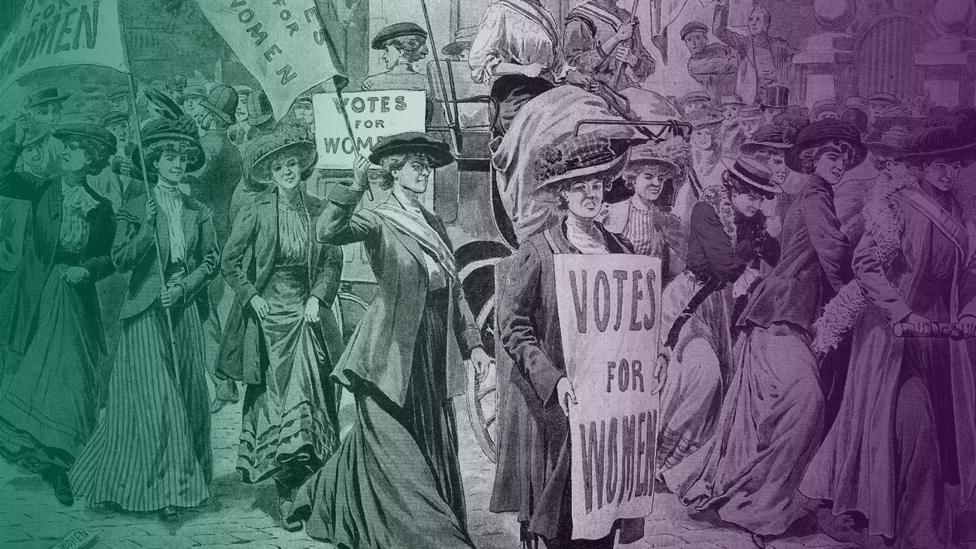
A statue marking the life of suffragist Millicent Fawcett was unveiled in London this week.
This hugely influential feminist campaigned for the right to vote, which was granted to women over the age of 30 a century ago in 1918.
But even as late as 1917 - just months before the bill was passed - powerful men in Parliament were trying to stop votes for women.
Here are some of their arguments, according to House of Commons records.

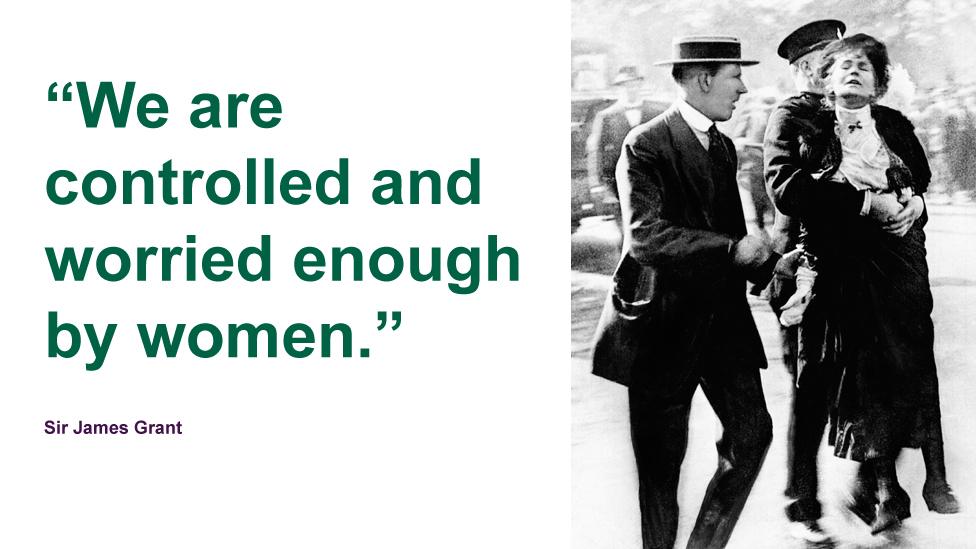
Sir James Grant, MP for Whitehaven
"Men have the vote and the power at the present moment; I say for Heaven's sake let us keep it.
"We are controlled and worried enough by women at the present time, and I have heard no reason why we should alter the present state of affairs."

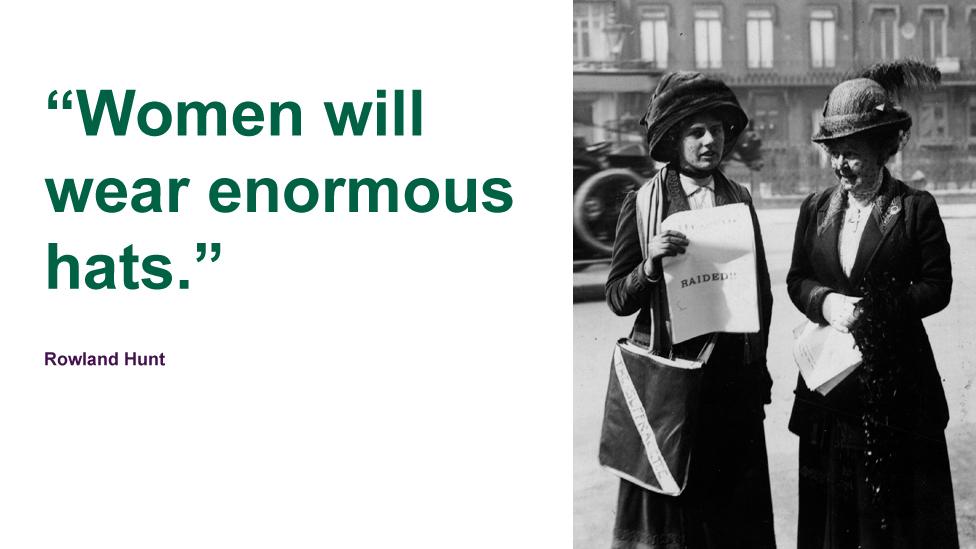
Rowland Hunt, MP for Ludlow
"There are obvious disadvantages about having women in Parliament. I do not know what is going to be done about their hats.
"How is a poor little man to get on with a couple of women wearing enormous hats in front of him?"

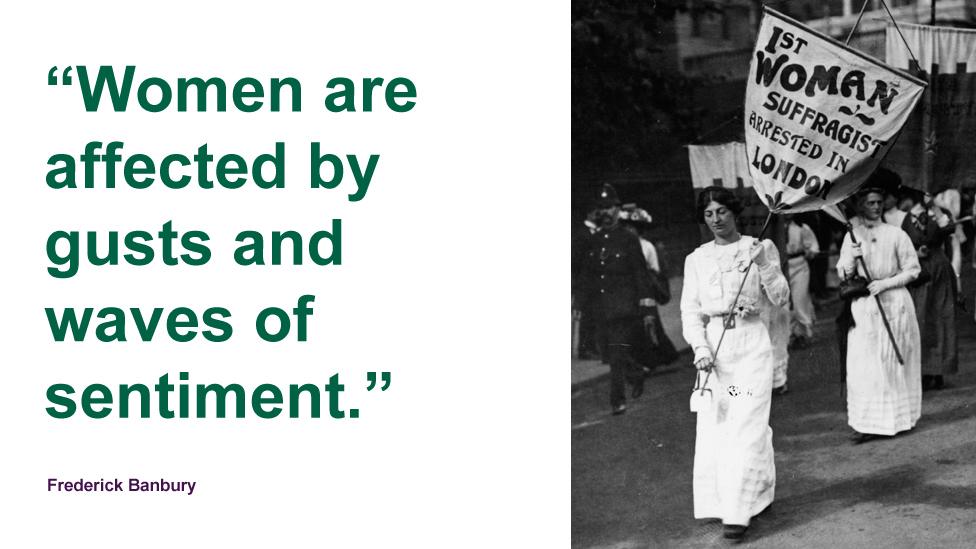
Frederick Banbury, MP for City of London
"Women are likely to be affected by gusts and waves of sentiment.
"Their emotional temperament makes them so liable to it. But those are not the people best fitted in this practical world either to sit in this House... or to be entrusted with the immense power which this bill gives them."

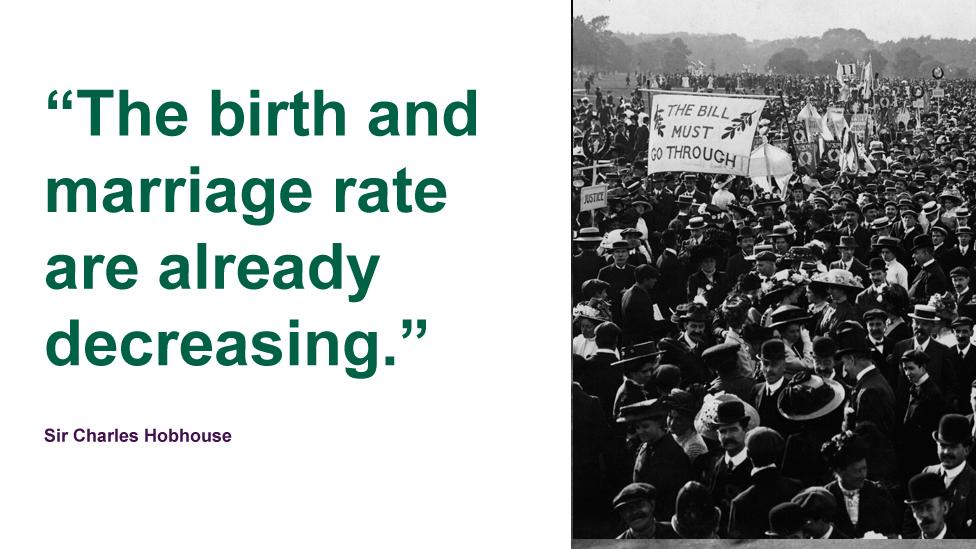
Sir Charles Hobhouse, MP for Bristol East and Chancellor of the Duchy of Lancaster
"You have at the present moment certain statistics which show that both the birth and marriage rate are decreasing.
"Can you adopt at this time a policy which might mean an immense destruction of the population of the country which it is essential should not only be retained, but increased."

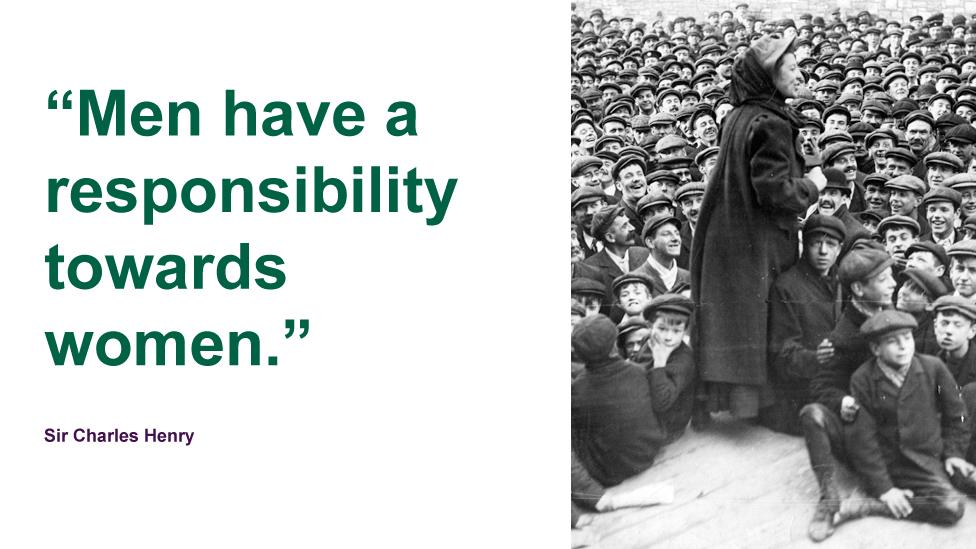
Sir Charles Henry, MP for Wellington
"One of the greatest features in connection with this country is the responsibility of men towards women, and I would view with the greatest apprehension any step which would tend to relieve men of that responsibility."

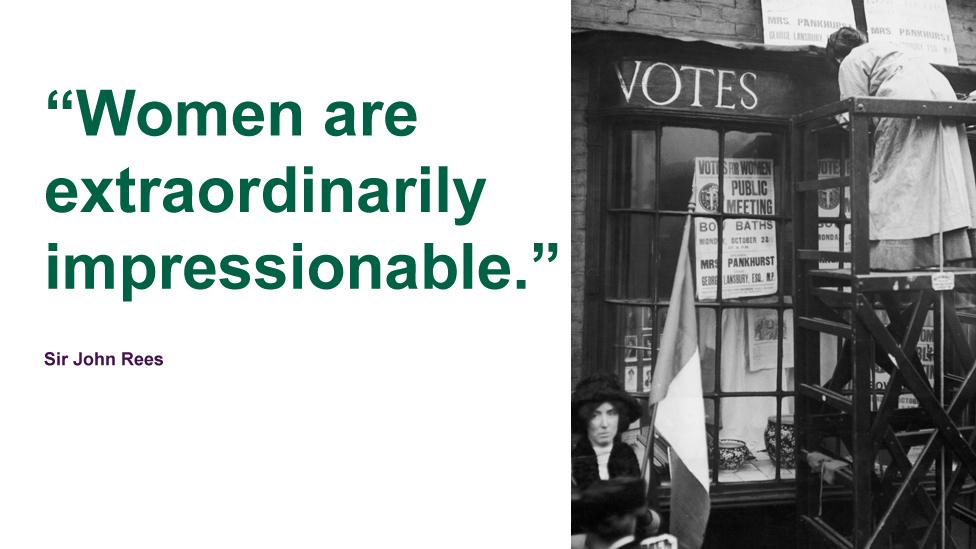
Sir John Rees, MP for Nottingham East
"Women are tremendously accessible, extraordinarily impressionable, noted for the adoption of any new thing, and for the easy acceptance of other people's views.
"Are those qualities which fit women to rule over the home and foreign affairs of a mighty empire?"
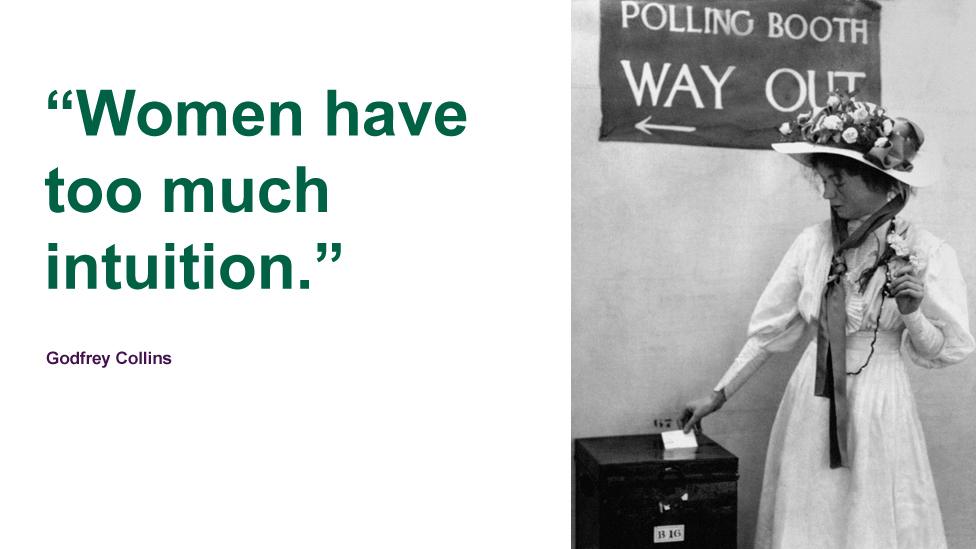

Godfrey Collins, MP for Greenock
"Intuition is far more largely developed in women than in men, but instinct and intuition, although good guides, are not the best masters so far as Parliament is concerned.
"Parliament exists for the very purpose of opposing feelings, fancies, and inclinations by reason."

John Henderson, MP for Aberdeenshire Western
"I have read their writings, and in one paper... a moderate publication, I saw that the Prime Minister was violently described as an old fossil.
"What can you say of people who exhibit such a want of judgment, and such a lack of perception of actual facts?"

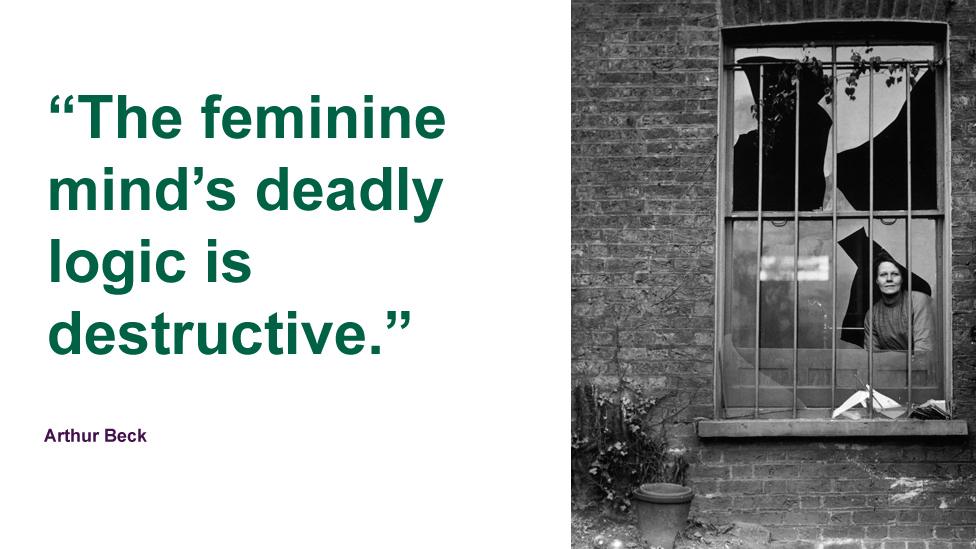
Arthur Beck, MP for Saffron Walden
"I daresay that the idealism of the feminine mind and its deadly logic which we have all experienced in private life are qualities superior to those of men, but I do say that in governing a great country and in considering the problems which we have to consider every day in this House such qualities are not valuable, but destructive."

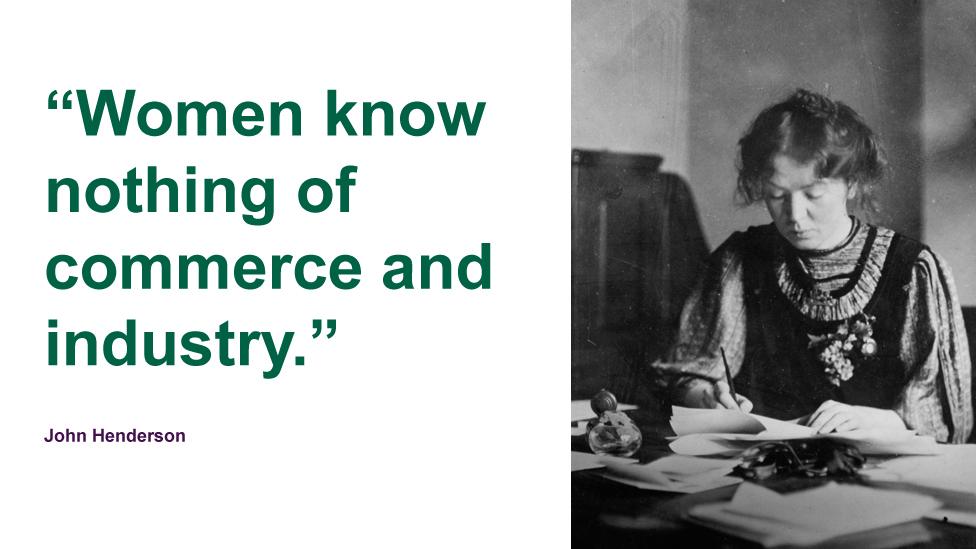
John Henderson, MP for Aberdeenshire Western
"This is a commercial and industrial country. But it could hardly be hoped that women could govern and manage our commerce and industry.
"If we were to have women in this House they would be legislating for these commercial industries of the management of which they know nothing."
